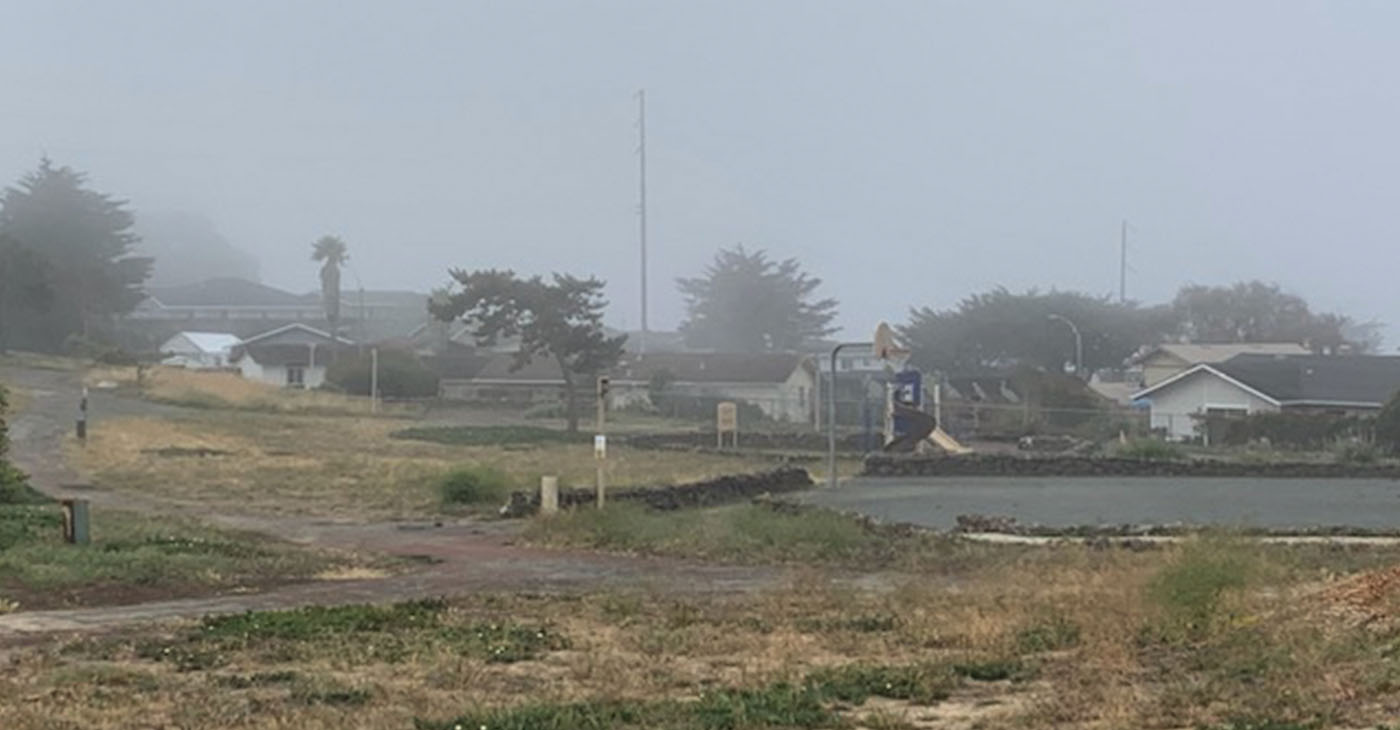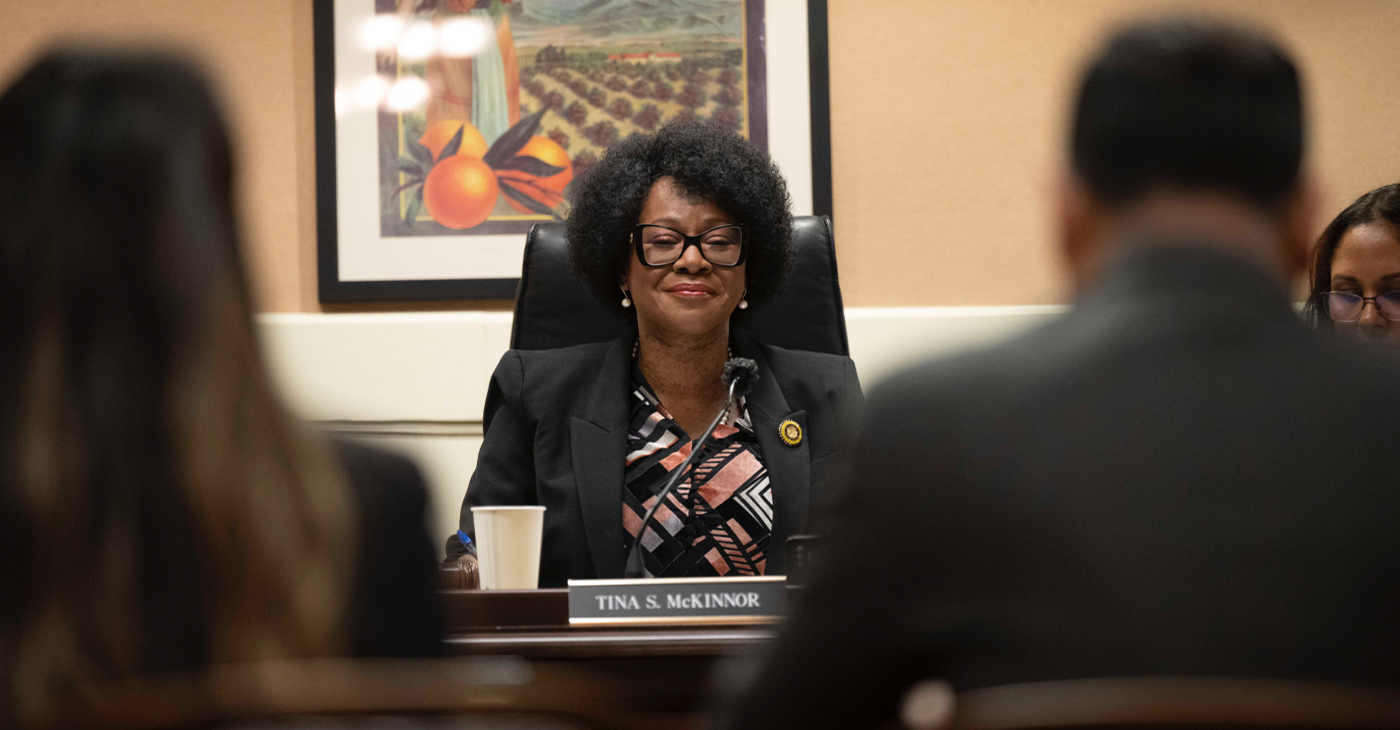California Black Media
Calif. Park Advocates Want More Green Spaces in Black Neighborhoods
Some advocates say the state is not developing and maintaining community recreational facilities equally. They point out that green spaces in neighborhoods where Black Californians live remain underfunded even though the state has invested billions of dollars over the last decade-and-a-half to improve them.

McKenzie Jackson
California Black Media
Some advocates say the state is not developing and maintaining community recreational facilities equally. They point out that green spaces in neighborhoods where Black Californians live remain underfunded even though the state has invested billions of dollars over the last decade-and-a-half to improve them.
“They need to have a system to get money to the Black communities,” said Danny J. Bakewell, Sr., a Los Angeles-based businessman, civil rights activist, and philanthropist.
“They will tell you they have a system to make sure it’s not unfair, but the way they do the funding is not fair,” continued Bakewell, the only Black member of the California State Park and Recreation Commission. “Black people are not getting that money.”
Bakewell expressed concerns the scoring system employed by the California Department of Parks and Recreation’s Statewide Park Development and Community Revitalization Program (SPP) to determine how funds are distributed does not benefit African American cities and neighborhoods.
Defending its operations and application process, the SPP says giving all Golden State residents access to open outdoor spaces is its main goal.
State Parks Deputy Director for Community Engagement Sedrick Mitchell said SPP has, “placed green spaces in places where they weren’t before.”
SPP’s grants initiative, according to Mitchell, is the largest parks-related program in California history. It has funded $1.16 billion in construction, expansion, or renovation of 299 parks since 2009.
Applications are evaluated in a competitive process. Project approval is determined by a scoring system that awards a maximum of 100 points.
SPP says, the main qualifying criterion for funding is the ratio of park acreage per 1,000 residents living near the park, the median household income of those residents, and the number of residents living below the poverty line.
“If you have zero acres, you are likely to get the most points,” Mitchell explained. “If you have two acres, you are going to get less. The law requires us to look at two things — acres per 1,000 and income,”
Bakewell, who has been a parks commissioner for two years, said Seaside, a small Monterey Bay city with a Black mayor and a significant Black population should have received SPP funds.
Seaside Recreation Services Director Dan Meewis said the city has decades-old parks with deteriorating sidewalks.
“It’s a centralized hub for kids from a variety of neighborhoods,” he explained. “The walking trails throughout the parks are horrendous, tripping hazards.
The city’s two applications for SPP funding, the latest in 2021, were denied.
Mitchell says, state legislation directed the Parks’ initiative to prioritize funding for the creation of new parks over rehabilitations.
Mitchell and his staff met with Bakewell, Meewis, and Seaside Mayor Ian Oglesby to review the city’s denied proposals. Meews said he wished Seaside would have received guidance on how to improve their bid before their second application was rejected.
Mitchell said an area’s racial or ethnic makeup plays no part in how SPP monies are dispersed.
Bakewell wants to do more but said the commission he serves on doesn’t have a say in which projects are funded.
“Black communities at a minimum need stellar parks and recreation,” said Bakewell.
Activism
Oakland Post: Week of April 24 – 30, 2024
The printed Weekly Edition of the Oakland Post: Week of April 24 – 30, 2024

To enlarge your view of this issue, use the slider, magnifying glass icon or full page icon in the lower right corner of the browser window. ![]()
Business
Black Business Summit Focuses on Equity, Access and Data
The California African American Chamber of Commerce hosted its second annual “State of the California African American Economy Summit,” with the aim of bolstering Black economic influence through education and fellowship. Held Jan. 24 to Jan. 25 at the Westin Los Angeles Airport Hotel, the convention brought together some of the most influential Black business leaders, policy makers and economic thinkers in the state. The discussions focused on a wide range of economic topics pertinent to California’s African American business community, including policy, government contracts, and equity, and more.

By Solomon O. Smith, California Black Media
The California African American Chamber of Commerce hosted its second annual “State of the California African American Economy Summit,” with the aim of bolstering Black economic influence through education and fellowship.
Held Jan. 24 to Jan. 25 at the Westin Los Angeles Airport Hotel, the convention brought together some of the most influential Black business leaders, policy makers and economic thinkers in the state. The discussions focused on a wide range of economic topics pertinent to California’s African American business community, including policy, government contracts, and equity, and more.
Toks Omishakin, Secretary of the California State Transportation Agency (CALSTA) was a guest at the event. He told attendees about his department’s efforts to increase access for Black business owners.
“One thing I’m taking away from this for sure is we’re going to have to do a better job of connecting through your chambers of all these opportunities of billions of dollars that are coming down the pike. I’m honestly disappointed that people don’t know, so we’ll do better,” said Omishakin.
Lueathel Seawood, the president of the African American Chamber of Commerce of San Joaquin County, expressed frustration with obtaining federal contracts for small businesses, and completing the process. She observed that once a small business was certified as DBE, a Disadvantaged Business Enterprises, there was little help getting to the next step.
Omishakin admitted there is more work to be done to help them complete the process and include them in upcoming projects. However, the high-speed rail system expansion by the California High-Speed Rail Authority has set a goal of 30% participation from small businesses — only 10 percent is set aside for DBE.
The importance of Diversity, Equity and Inclusion (DEI) in economics was reinforced during the “State of the California Economy” talk led by author and economist Julianne Malveaux, and Anthony Asadullah Samad, Executive Director of the Mervyn Dymally African American Political and Economic Institute (MDAAPEI) at California State University, Dominguez Hills.
Assaults on DEI disproportionately affect women of color and Black women, according to Malveaux. When asked what role the loss of DEI might serve in economics, she suggested a more sinister purpose.
“The genesis of all this is anti-blackness. So, your question about how this fits into the economy is economic exclusion, that essentially has been promoted as public policy,” said Malveaux.
The most anticipated speaker at the event was Janice Bryant Howroyd known affectionately to her peers as “JBH.” She is one of the first Black women to run and own a multi-billion-dollar company. Her company ActOne Group, is one of the largest, and most recognized, hiring, staffing and human resources firms in the world. She is the author of “Acting Up” and has a profile on Forbes.
Chairman of the board of directors of the California African American Chamber of Commerce, Timothy Alan Simon, a lawyer and the first Black Appointments Secretary in the Office of the Governor of California, moderated. They discussed the state of Black entrepreneurship in the country and Howroyd gave advice to other business owners.
“We look to inspire and educate,” said Howroyd. “Inspiration is great but when I’ve got people’s attention, I want to teach them something.”
California Black Media
Asm. Tina McKinnor Elected Chair of L.A. Delegation to Legislature
On Jan. 24, the members of the Los Angeles County Delegation (LACD) to the California Legislature elected Assemblymember Tina McKinnor (D-Inglewood) as the group’s chair. McKinnor, who is a member of the California Legislative Black Caucus, will lead the 39-member body, which is comprised of 15 State Senators and 24 State Assemblymembers representing various areas of Los Angeles County.

By California Black Media
On Jan. 24, the members of the Los Angeles County Delegation (LACD) to the California Legislature elected Assemblymember Tina McKinnor (D-Inglewood) as the group’s chair.
McKinnor, who is a member of the California Legislative Black Caucus, will lead the 39-member body, which is comprised of 15 State Senators and 24 State Assemblymembers representing various areas of Los Angeles County.
As LACD chair, McKinnor succeeds Assemblymember Luz Rivas (D-San Fernando Valley).
“I am grateful for the trust legislators from the Los Angeles County Delegation have placed in me to serve as its next Chair,” said McKinnor in a statement.
LACD Vice Chair, Sen. Maria Elena Durazo (D-Los Angeles), said the body, which collectively represents about 10 million people in California’s populous county, is the largest, bi-partisan, and most diverse delegation in the California Legislature.
“Heading into a challenging budget year, the Delegation, and I will be intensely focused on making sure communities throughout Los Angeles County receive the services they need and that we continue our historic investments to address homelessness and the housing affordability crisis in Los Angeles County,” Durazo added.
McKinnor thanked Rivas for her stewardship of the LACD during the last legislative session.
“The Delegation and I are grateful to outgoing Chair, Assemblymember Luz Rivas, for her incredible leadership to the Legislature, the state, and especially the people of Los Angeles County,” said McKinnor.
-

 Activism4 weeks ago
Activism4 weeks agoOakland Post: Week of March 27 – April 2, 2024
-

 #NNPA BlackPress4 weeks ago
#NNPA BlackPress4 weeks agoBeloved Actor and Activist Louis Cameron Gossett Jr. Dies at 87
-

 Community1 week ago
Community1 week agoFinancial Assistance Bill for Descendants of Enslaved Persons to Help Them Purchase, Own, or Maintain a Home
-

 Activism3 weeks ago
Activism3 weeks agoOakland Post: Week of April 3 – 6, 2024
-

 Business2 weeks ago
Business2 weeks agoV.P. Kamala Harris: Americans With Criminal Records Will Soon Be Eligible for SBA Loans
-

 Activism2 weeks ago
Activism2 weeks agoOakland Post: Week of April 10 – 16, 2024
-

 Community2 weeks ago
Community2 weeks agoAG Bonta Says Oakland School Leaders Should Comply with State Laws to Avoid ‘Disparate Harm’ When Closing or Merging Schools
-

 Community1 week ago
Community1 week agoOakland WNBA Player to be Inducted Into Hall of Fame



















































